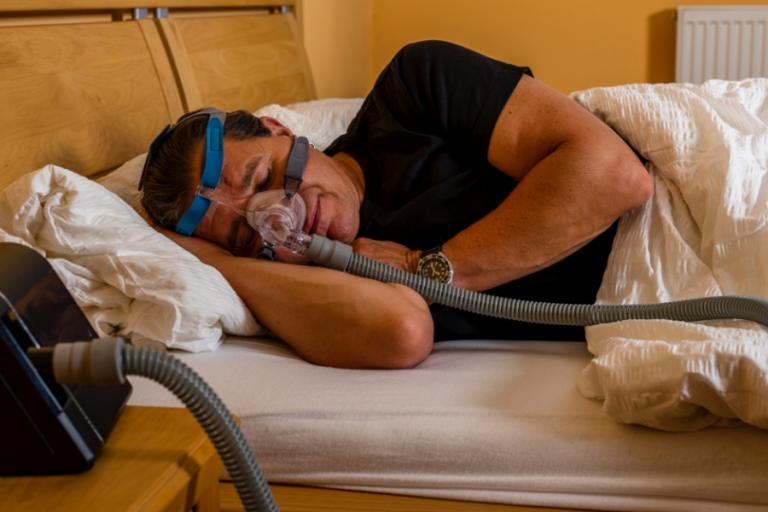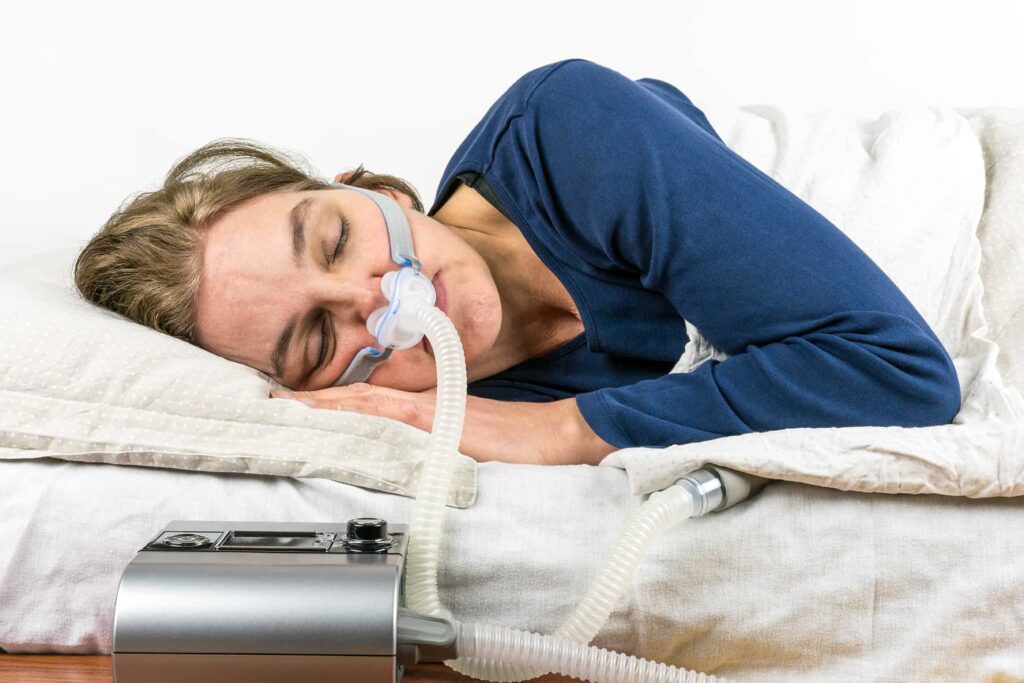Sleep plays a vital role in our overall health and well-being. It allows our body and mind to recover and rejuvenate, ensuring that we wake up feeling refreshed and ready to tackle the day ahead. However, getting a good night’s sleep is not always easy, especially for those who suffer from breathing difficulties or sleep disorders. That’s where Continuous Positive Airway Pressure (CPAP) masks come in.
In this article, we will dive deep into the latest advancements in CPAP mask technology and explore how to buy cpap mask online and sleep better.
Understanding the Importance of Good Sleep and Breathing
Quality sleep and proper breathing are interconnected in more ways than we realize. When we sleep, our body naturally undergoes various processes to repair itself, regulate hormones, and consolidate memories. Without adequate sleep, our cognitive function, mood, and overall health can suffer. Breathing plays a crucial role in this process as it ensures that our body receives enough oxygen and removes carbon dioxide, allowing our cells to function properly.
During sleep, our respiratory system goes through a complex series of actions to maintain a steady flow of oxygen to our vital organs. As we inhale, the air travels through our nasal passages, down the throat, and into the lungs. The oxygen is then transported to the bloodstream, where it is distributed to every cell in our body. At the same time, carbon dioxide, a waste product of cellular metabolism, is expelled from the body through exhalation. Click here to find your perfect fit with CPAP masks.
The Connection Between Sleep and Breathing
Sleep and breathing are closely intertwined. During sleep, our respiratory system may become compromised due to several factors, including sleep apnea, snoring, or other sleep-related breathing disorders. These issues can disrupt the quality of our sleep, leaving us feeling fatigued and experiencing various health problems. Understanding the link between sleep and breathing is essential in recognizing the importance of finding effective solutions.

One common sleep-related breathing disorder is sleep apnea, which affects millions of people worldwide. Sleep apnea is characterized by pauses in breathing during sleep, often accompanied by loud snoring or choking sounds. These pauses can last for a few seconds to a minute and can occur multiple times throughout the night. As a result, the individual’s sleep is fragmented, leading to daytime sleepiness and a decreased quality of life.
The Impact of Sleep Disorders on Health
Sleep disorders, such as sleep apnea, can have a profound impact on our health. Sleep apnea is a condition in which breathing repeatedly stops and starts during sleep, often leading to fragmented sleep patterns and oxygen deprivation. If left untreated, sleep apnea can increase the risk of cardiovascular disease, high blood pressure, stroke, diabetes, and other serious health complications. Therefore, it is crucial to seek treatment and explore the options available, including CPAP mask therapy.
CPAP (Continuous Positive Airway Pressure) therapy is a common treatment for sleep apnea. It involves wearing a mask over the nose or mouth during sleep, which delivers a continuous flow of pressurized air to keep the airways open. This helps prevent the pauses in breathing and ensures a steady supply of oxygen to the body. CPAP therapy has been proven to be highly effective in improving sleep quality, reducing daytime sleepiness, and lowering the risk of associated health problems.
In addition to CPAP therapy, lifestyle changes can also play a significant role in managing sleep disorders. Maintaining a healthy weight, avoiding alcohol and sedatives before bedtime, and practicing good sleep hygiene can all contribute to better sleep and breathing. It is important to consult with a healthcare professional to determine the most appropriate treatment plan based on individual needs and circumstances.
The Role of CPAP Masks in Sleep Therapy
CPAP masks are an integral part of sleep therapy, particularly for individuals with breathing difficulties. CPAP stands for Continuous Positive Airway Pressure. This therapy involves wearing a mask connected to a machine that delivers a constant flow of pressurized air to keep the airways open during sleep. By providing a steady stream of air pressure, CPAP masks prevent the airway from collapsing, effectively treating sleep apnea and promoting better breathing throughout the night.
Sleep apnea is a common sleep disorder characterized by pauses in breathing or shallow breaths during sleep. These interruptions can occur multiple times throughout the night, leading to fragmented sleep and a range of health issues. CPAP masks play a crucial role in managing sleep apnea by ensuring a continuous flow of air, which helps to maintain normal breathing patterns and prevent oxygen deprivation.
When a person with sleep apnea wears a CPAP mask, the pressurized air acts as a pneumatic splint, keeping the airway open and allowing for unobstructed airflow. This eliminates the pauses in breathing and reduces the frequency and severity of apnea episodes. As a result, individuals experience improved sleep quality, reduced daytime sleepiness, and enhanced overall well-being.

How CPAP Masks Work
CPAP masks operate on a simple yet effective principle. The mask fits securely over the nose and mouth, creating a sealed connection. The machine then delivers a specific air pressure level through the mask and into the airway. This continuous positive pressure acts as a splint, preventing the airway walls from collapsing or becoming blocked, allowing for uninterrupted breathing throughout the sleep cycle. The result is improved oxygenation and a reduction in sleep apnea symptoms.
The CPAP machine itself consists of a motor that generates the pressurized air, a humidifier to add moisture to the air, and a tubing system that connects the machine to the mask. The air pressure setting can be adjusted based on the individual’s needs, as prescribed by a healthcare professional. Some CPAP machines also come with advanced features such as ramp-up settings, which gradually increase the air pressure to help users ease into sleep comfortably.
It is important to note that CPAP masks should be properly fitted to ensure optimal therapy. Ill-fitting masks can cause discomfort, air leaks, and reduced effectiveness. Healthcare providers work closely with patients to select the right mask size and style, considering factors such as facial structure, mask compatibility, and personal preferences. Regular follow-ups and mask adjustments may be necessary to ensure ongoing comfort and effectiveness.
Different Types of CPAP Masks
To cater to individual needs and preferences, there are various types of CPAP masks available. These include nasal masks that cover only the nose, full-face masks that cover both the nose and mouth, and nasal pillow masks that rest under the nostrils. Each mask type has its advantages and considerations, depending on factors such as facial structure, breathing patterns, and comfort preferences. Consulting with a healthcare professional can help determine the most suitable CPAP mask for an individual.
Nasal masks are a popular choice for individuals who breathe primarily through their nose. They are designed to fit securely over the nose, delivering pressurized air directly into the nasal passages. Nasal masks are generally lightweight and less intrusive, making them a comfortable option for many users. However, they may not be suitable for those who experience frequent nasal congestion or have difficulty breathing through their nose.
Full-face masks, on the other hand, cover both the nose and mouth, providing a secure seal for individuals who breathe through their mouth or have difficulty breathing through their nose. These masks are ideal for individuals who require higher air pressure or experience air leaks with nasal masks. Full-face masks often come with adjustable straps and cushioning to ensure a comfortable fit and minimize skin irritation.
Nasal pillow masks are the smallest and least invasive option. They feature small, soft cushions that rest under the nostrils, delivering pressurized air directly into the nasal passages. Nasal pillow masks are suitable for individuals who prefer minimal facial coverage and enjoy a more open field of vision. However, they may not be suitable for those who require higher air pressure or experience mouth breathing during sleep.
It is important to note that finding the right CPAP mask may require some trial and error. What works for one person may not work for another. Healthcare professionals play a crucial role in guiding individuals through the selection process, considering factors such as individual needs, mask compatibility, and comfort preferences. Regular follow-ups and mask adjustments may be necessary to ensure optimal therapy and long-term compliance.

Innovations in CPAP Mask Technology
Continuous advancements in CPAP mask technology have revolutionized the sleep therapy landscape. Manufacturers are continuously striving to improve mask design, materials, and comfort to enhance the overall treatment experience for users. Let’s explore some of the latest innovations that make CPAP masks more effective and user-friendly.
Material Advancements in CPAP Masks
The materials used in CPAP masks have seen significant advancements in recent years. Manufacturers now utilize lightweight and hypoallergenic materials that are gentle on the skin and minimize the risk of irritation or pressure sores. These materials are also designed to enhance the durability and longevity of the masks, allowing users to benefit from their investment over an extended period.
Design Improvements for Comfort and Efficiency
CPAP mask designs have also undergone notable improvements to enhance comfort and efficiency. Mask frames are now lighter and less obtrusive, reducing the feeling of claustrophobia and ensuring a better fit for different facial structures. Some masks feature adjustable headgear, straps, and cushioning to provide a customized fit and reduce air leaks. These design improvements aim to minimize discomfort, enhance therapy adherence, and promote a restful night’s sleep for users.
Choosing the Right CPAP Mask for You
With the multitude of options available, choosing the right CPAP mask requires careful consideration. Here are some factors to keep in mind when selecting a CPAP mask that suits your needs:
Factors to Consider When Selecting a CPAP Mask
- Comfort: Opt for a mask that provides a comfortable fit and does not cause undue pressure on the face or head.
- Mask Type: Determine whether you prefer a nasal mask, full-face mask, or nasal pillow mask based on your breathing habits and comfort preferences.
- Headgear Adjustability: Look for masks with adjustable headgear to ensure a secure fit and minimize air leaks.
- Cushion Size Options: Masks with different cushion sizes allow for a more personalized fit, maximizing comfort and effectiveness.
Understanding Your Unique Sleep Needs
Everyone’s sleep needs are different, which is why it’s essential to consider your specific requirements when selecting a CPAP mask. Factors such as facial structure, pressure settings, and personal preferences all play a role in finding the ideal mask for effective sleep therapy. Consulting with a sleep specialist or a healthcare professional can guide you in making an informed decision that caters to your unique sleep needs.
The Future of CPAP Mask Technology
As technology continues to evolve, so does the future of CPAP mask technology. Here are some predicted trends shaping the development of CPAP masks:
Predicted Trends in CPAP Mask Development
- Smart Connectivity: CPAP masks that seamlessly connect to mobile apps or wearable devices to provide real-time data and insights on sleep quality and therapy effectiveness.
- Customized Designs: Masks tailored to individual facial features through 3D scanning and printing technologies, offering unparalleled comfort and fit.
- Noise Reduction: Innovations in motor and design to reduce machine noise, enhancing the sleeping experience for users and their partners.
How Technology is Shaping Sleep Therapy
Technological advancements are revolutionizing the sleep therapy landscape. The integration of artificial intelligence (AI), machine learning, and data analytics is opening up exciting possibilities in diagnosing sleep disorders, tracking therapy progress, and personalizing treatment plans. As technology continues to advance, the future of CPAP mask technology holds tremendous potential in improving sleep quality and overall well-being.
In conclusion, the latest advancements in CPAP mask technology offer hope to those seeking improved sleep and better breathing. By understanding the importance of good sleep and the impact of sleep disorders on health, individuals can make informed decisions about their sleep therapy options. With innovations in CPAP mask materials, design, and customization, finding the right mask for individual needs has become more accessible than ever. As technology continues to shape the sleep therapy industry, the future holds great promise for better sleep and improved well-being.
